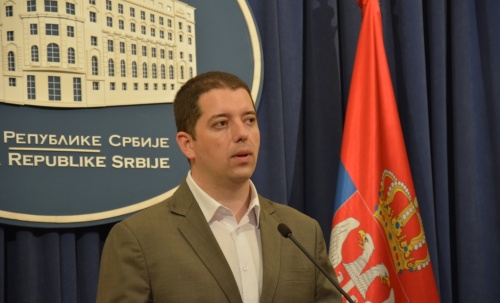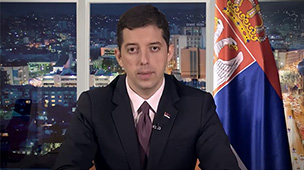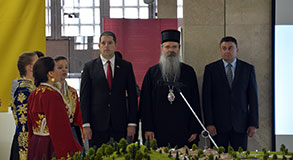Đurić: We did not consent to the establishment of telecommunication enclaves for Serbs
Delegations of Belgrade and Priština have failed to reach an agreement on implementation of the agreement on telecommunication, and the Director of the Office for Kosovo and Metohija, Marko Đurić underlined that Belgrade did not consent to the establishment of “telecommunication enclaves” for Serbs.

In his press statement, Đurić stated that the Belgrade’s delegation did not assent to the establishment of a precedent wherein our property would be presented as assets of Post and Telecommunications of Kosovo.
“We did not consent to the establishment of telecommunication enclaves for Serbs”, declared Đurić at the end of the fifth day of this week’s round of technical dialogue between Belgrade and Priština.
He underscored that Belgrade was open for an agreement, but not by using the language of blackmails.
“We are ready for talks whenever EU sets the date for meetings”, concluded Đurić.
The talks between the delegations of Belgrade and Priština on implementation of the agreement on telecommunication have started on Monday, and Belgrade’s delegation noted that this was one of the hardest negotiation experiences during the last four and a half years.
“The final agreement on telecommunication was not reached, even though a certain progress has been made. We did not allow for our company, our people in Kosovo and Metohija to be placed in some sort of telecommunication enclaves in which they would not have the signal coverage like they have now”, stated Djurić.
He explained that the delegation of Belgrade did not concede to the conditions which would leave the Serbian students at the University in Kosovska Mitrovica without internet access and without access to all other services, as it should be for all people, anywhere in Serbia or where the mobile telephony is being used.
“We did not let a precedent be made regarding the issue of property. If we did, the property which is being transferred to the new subsidiary company of Telekom Serbia would be presented as a property of Post and Telecommunications of Kosovo, as Priština requested, even though we know that those facilities were built mostly after 2004”, Đurić clarified.
The chief negotiator of Belgrade’s delegation in technical dialogue with Priština underscored that no one can play with issues of state and national interest.
“You can always have a purposeful conversation and reach an agreement with Serbia. You can never talk with Serbia in the language of ultimatums and blackmails. We remain committed to implementing our obligations and we hope that we will find partners in the future with whom we will be able to make a decent arrangement”, concluded Đurić.
In his answer to Tanjug on commenting the arrest of the commandant of Kosovo police in Serbia and whether this piece of news had affected the course of talks in Brussels, Đurić said that this did not affected the course of negotiations, nor it has been raised as a subject by the Priština’s delegation.
“As far as we are concerned, we do not want to intervene in any way into issues pertaining to the rule of law and to the work of judiciary. At least, we the Serbs have suffered enough due to intervening of politics into judiciary”, deemed Đurić.
Belgrade’s delegation informed that they are ready to continue with the dialogue once the EU sets the date.





